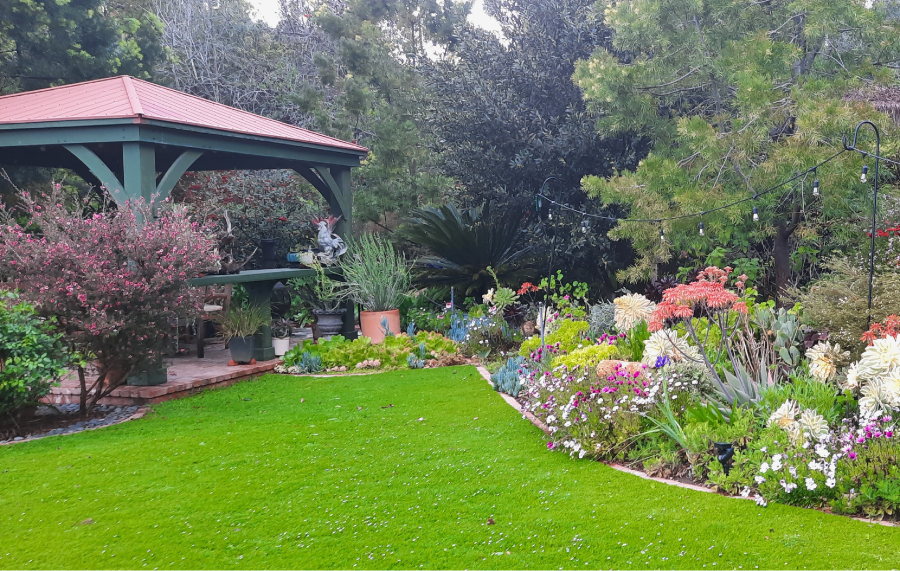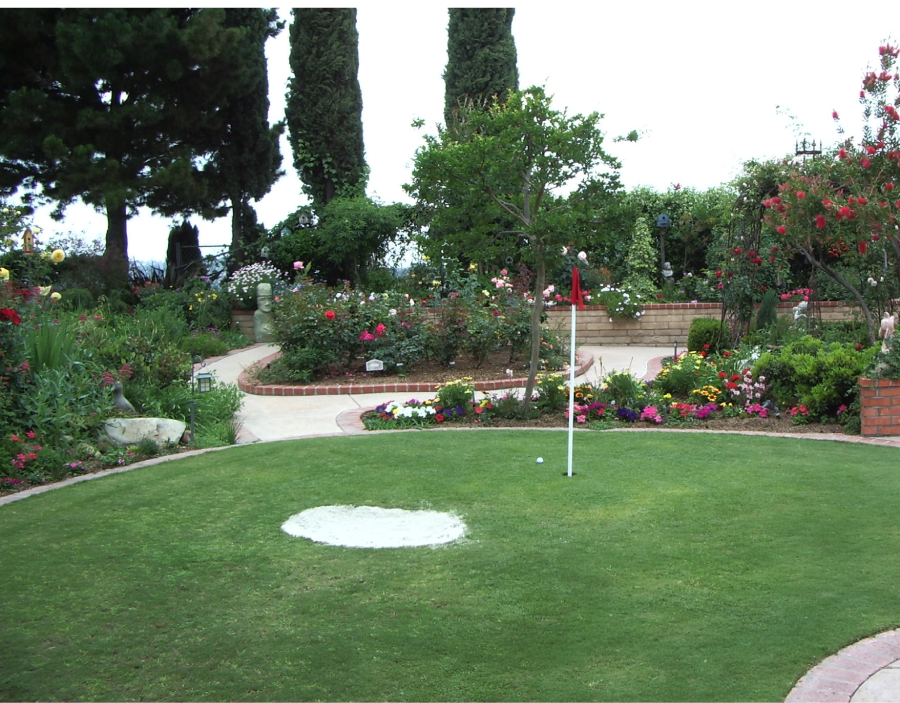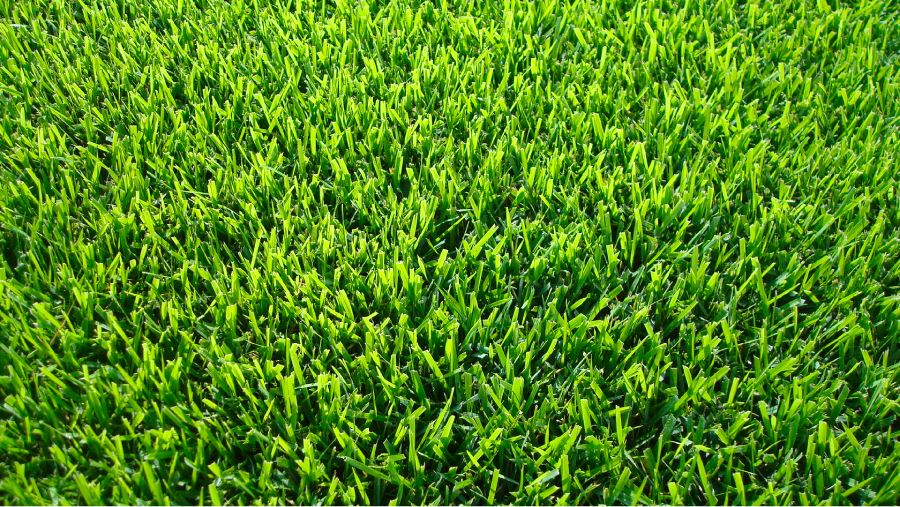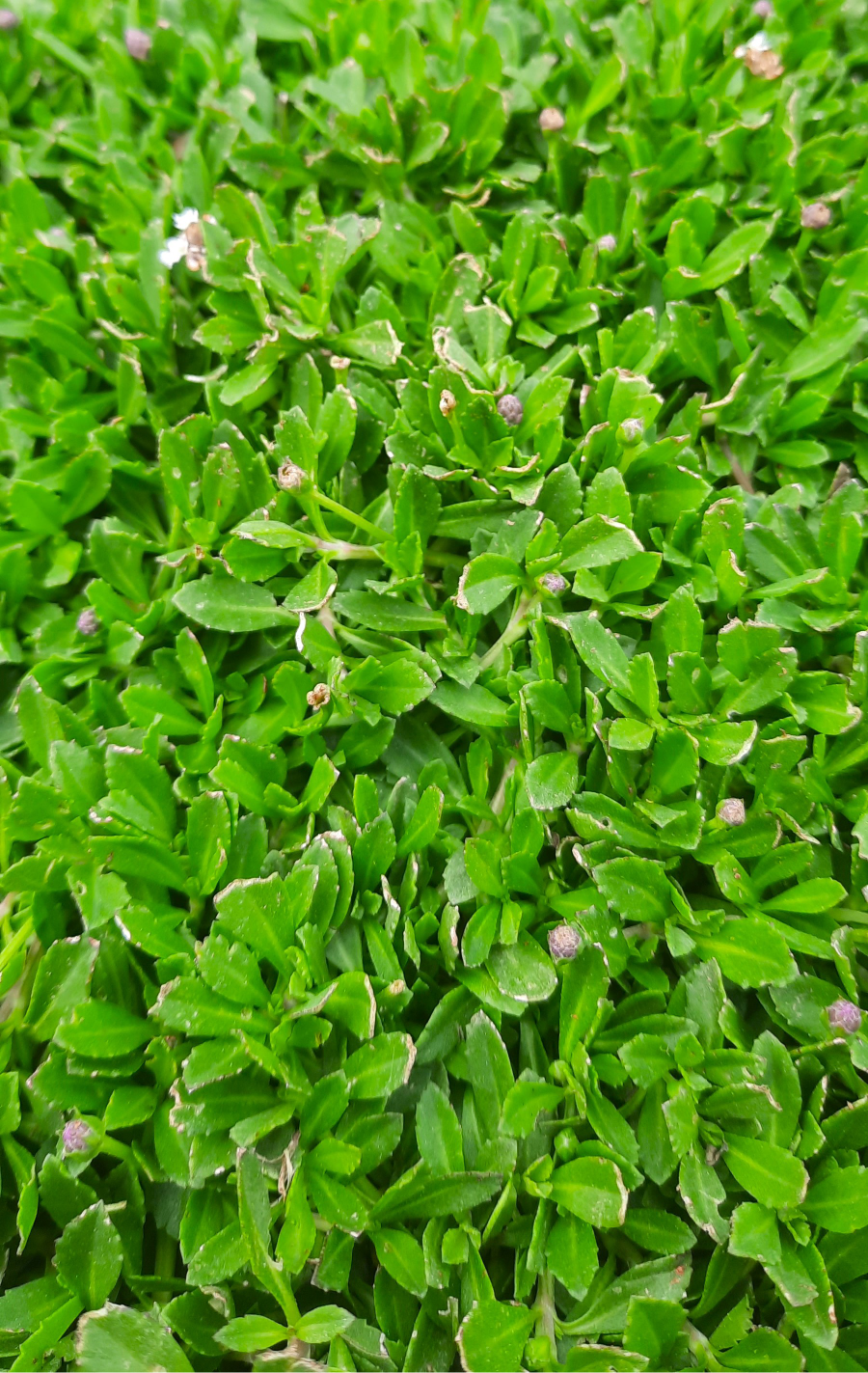Low Water Turf Alternatives for Our Climate

Kurapia ground cover used to highlite flowers and swimming pool. Photo by Susan Nichols
By Vince McGrath, UCCE Master Gardener of San Diego County
Several years ago, the mantra for San Diego homeowners was “Toss the Turf!” The reason was to stop wasting water that we did nothave on water-guzzling lawns. Water agencies were asking their customers to restrict water usage. The newer catch phrase was “Be water wise.”We were urged to replace that thirsty grass with low-water plants such as catus, succulents and Mediterranean plants that do well in our region, and to add rocks, dg, and other non-plant material to create a look using less water and that would beeasier to maintain. The consumers, who did this, took advantage of great rebates that helped them cover some of the costs to replace irrigation, plants, and other items.
If you take the time to drive around your neighborhood, you will see where people have not takenadvantage of the rebates. They are spending time on maintenance and have higher water bills. Also, invasive grasses have found their way into turf, making it a challenge to maintain a good-looking lawn.
But wait! You still want lush green grass. The good news is that it’s possible to grow healthy turf grass while cutting your water usage!
Most of Southern California requires a warm-season ground cover that has a high tolerance for drought and very little shade.
Here are 3 drought tolerant turf alternatives:

Bermuda Tif Green used as a back yard putting green. - Vince McGrath
Tifgreen Hybrid Bermuda (Cynodondactylon x C. transvaalensis)is ideal for our hot and arid climate. It prefers sun and little shade, can stand foot traffic, and recovers quickly from wear and tear due to its aggressive growth.It is disease tolerant and stays green except in the winter when it can be seeded over. This turf alternative is used on golf courses, and in parks and residential homes. Consider it as a go-to option but be aware that it can spread, through rhizomes, to other areas of the garden.

Zoysiagrass (UC-IPM)
Zoysiagrass (Zoysia japonica) was developed in Japan. This warm-season turf can survive and grow in any soil. It has a high tolerance for heat, drought, and heavy traffic. It is slow growing but once established has few pest problems. Zoysia uses less fertilizer and nitrogen (though using some in winter helps retain its green color). There are new varieties that tend to become established quickly.

Kurapia Grass (Susan Nichols)
Kurapia(Lippianodiflora L. Kurapia) is University of California-Tested Drought Tolerant. This is a newly developed, highly versatile, low maintenance, low water turf once established. It is dark green and grows rapidly but not high. Its dense growth suppresses weeds and can help with soil erosion. If left un-mowed, Kurapia has a small white flower from May to October. Kurapia is available in plugs or sod and should be planted in full sun to part shade. It is not recommended for heavy traffic areas.
More information on turf management and low-water turf can be found at UC IPM Guide to Healthy Lawns. https://ipm.ucanr.edu/tools/turf/
Sources: info@kurapia.com
Agriculture and Natural Resources, University of California/UC IPM Guide to Healthy Lawns.
Vince McGrath has been a San Diego Master Gardener since 2020 and has been a Docent Volunteer at the Water Conservation Garden for 17 years.
My interests in gardening started with my wife Kay MG 2020 after the purchase of our new home and blank property in 1979. She gave me a crash course on plants, and I’ve never looked back!

